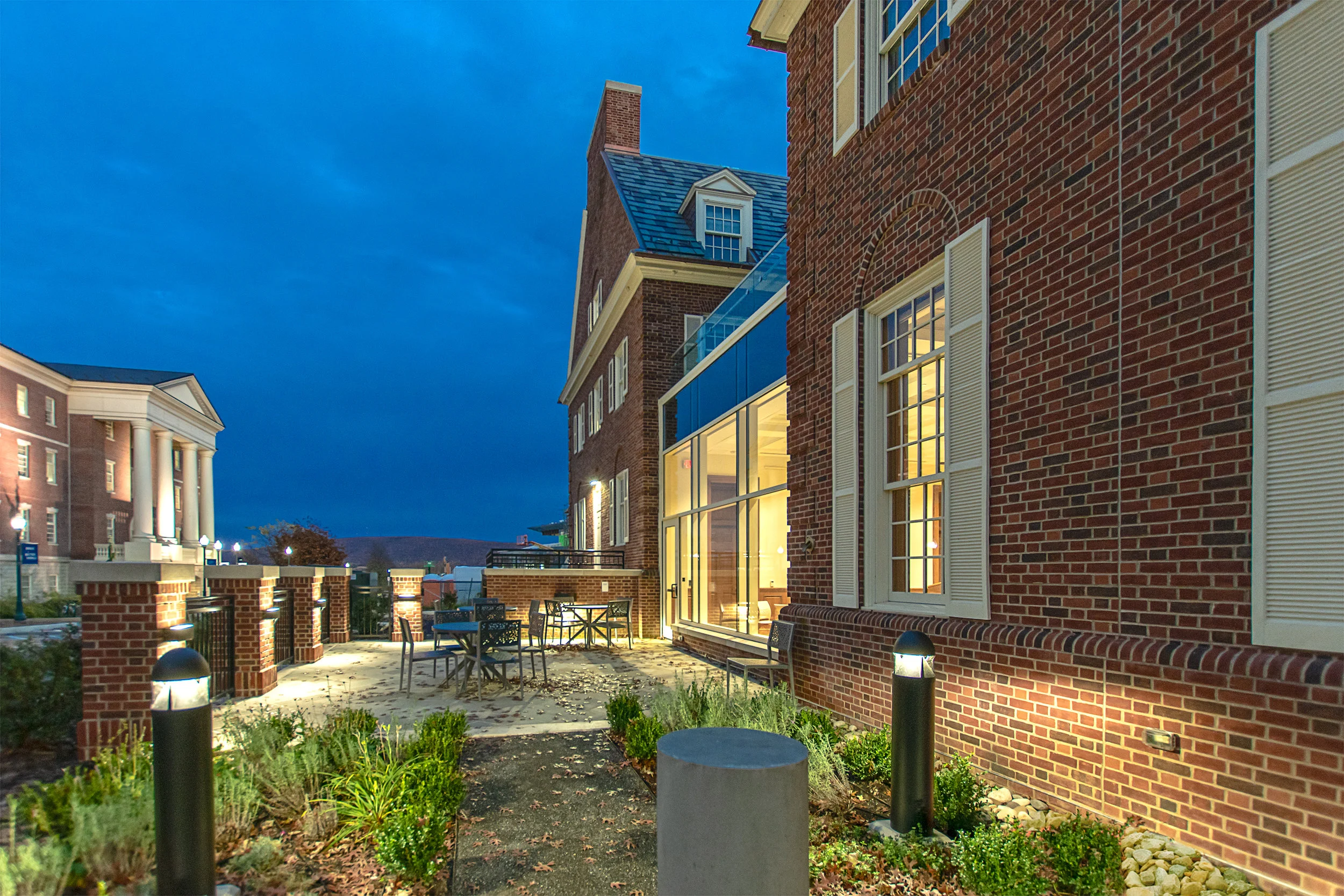
Bucknell University | Hildreth-Mirza Humanities Center

Now the Hildreth-Mirza Humanities Center, Bucknell University purchased the building formerly known at the Demosthenean Hall home to Delta Upsilon Fraternity in 2005 and utilized it as a residence hall for more than 10 years until the decision was made the create an inviting facility for humanities students and faculty that promotes humanists collaboration and research.
The LEED-silver facility boasts a green roof, a living wall, Shakespearean Garden, and energy-efficient façade and system upgrades. The project consisted of an addition on the north side to provide an accessibility entrance, an elevator to service all the floors, and a great room as well as renovations to the existing building. The building is part of an historic quadrangle and is surrounded by old growth trees which had to be protected.
Now that the renovations are complete the building is home to the Bucknell Humanities Center, The Griot Institute for Africana Studies, and the Bucknell University Press. The building is intended for the use of all students, faculty and staff members engaged in humanistic work of any sort.





Demosthenean Hall was constructed in 1941 with an addition constructed in 1966. It was utilized as the Delta Upsilon Fraternity until 2005 when it was purchased by Bucknell University. Bucknell performed minor renovations to the structure in 2006 and utilized the building as a residence hall. The building will be used as a residence hall until May 2017 when renovations have been scheduled to change the use of the building to a Humanities Center. The goal of the renovation is to create an inviting facility for humanities students and faculty that promotes humanists collaboration and research;
The project will consist of an addition on the north side to provide an accessibility entrance, an elevator to service all the floors and a great room as well as renovations to the existing building. The building will house a Humanities Library, Digital Lab, The Bucknell Press and faculty offices. Construction is set to begin in May, 2017. The building is part of an historic quadrangle and is surrounded by old growth trees which must be protected.
The project will seek to be LEED Certified under USGBC LEED 2009 and includes a green roof, a living wall and a Shakespearean Garden.






